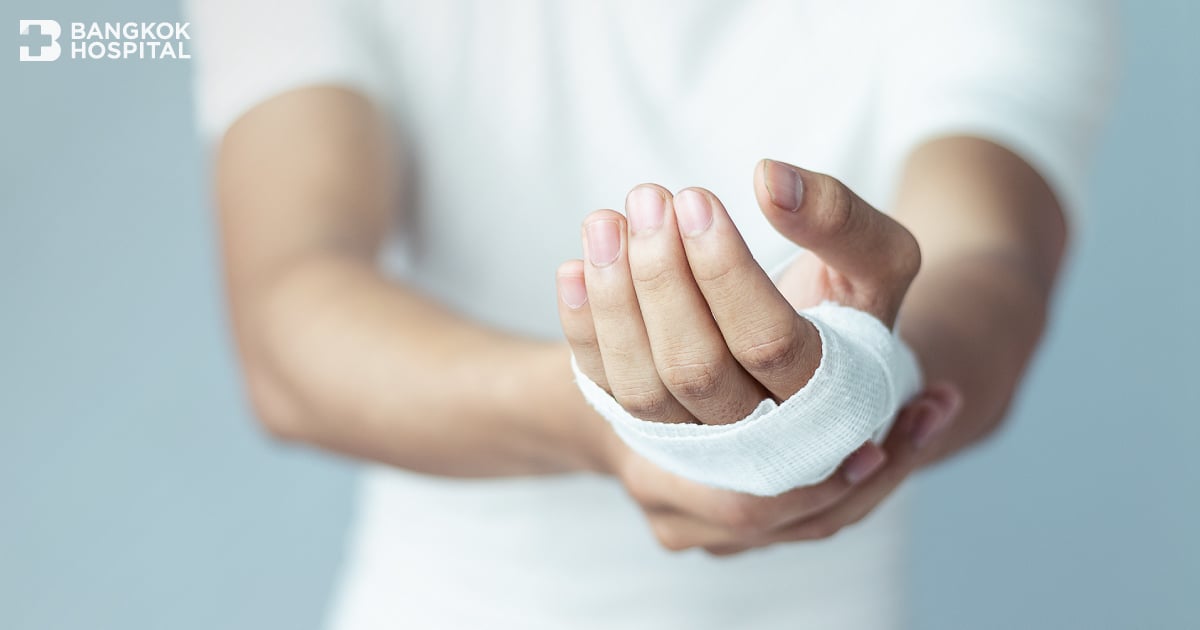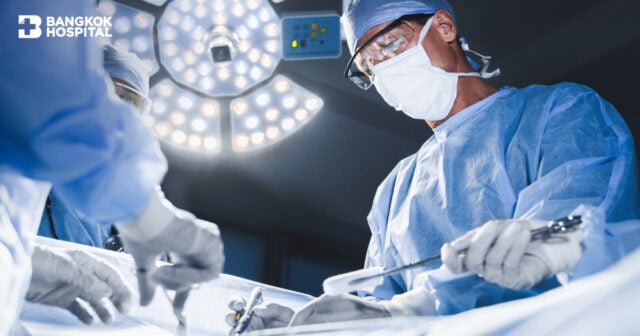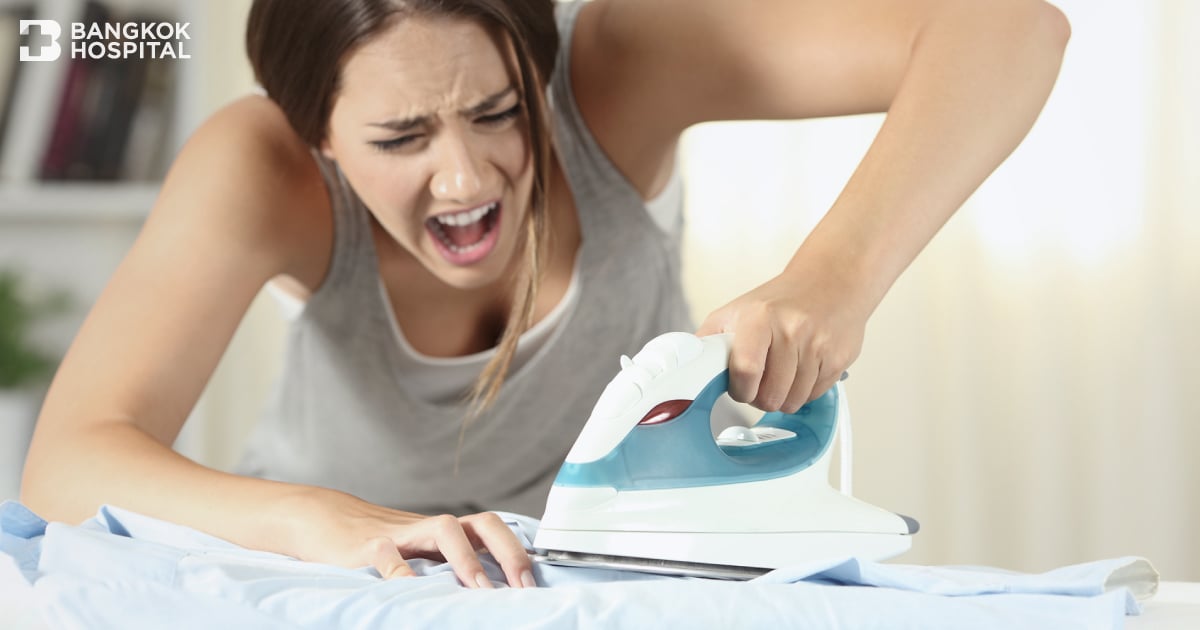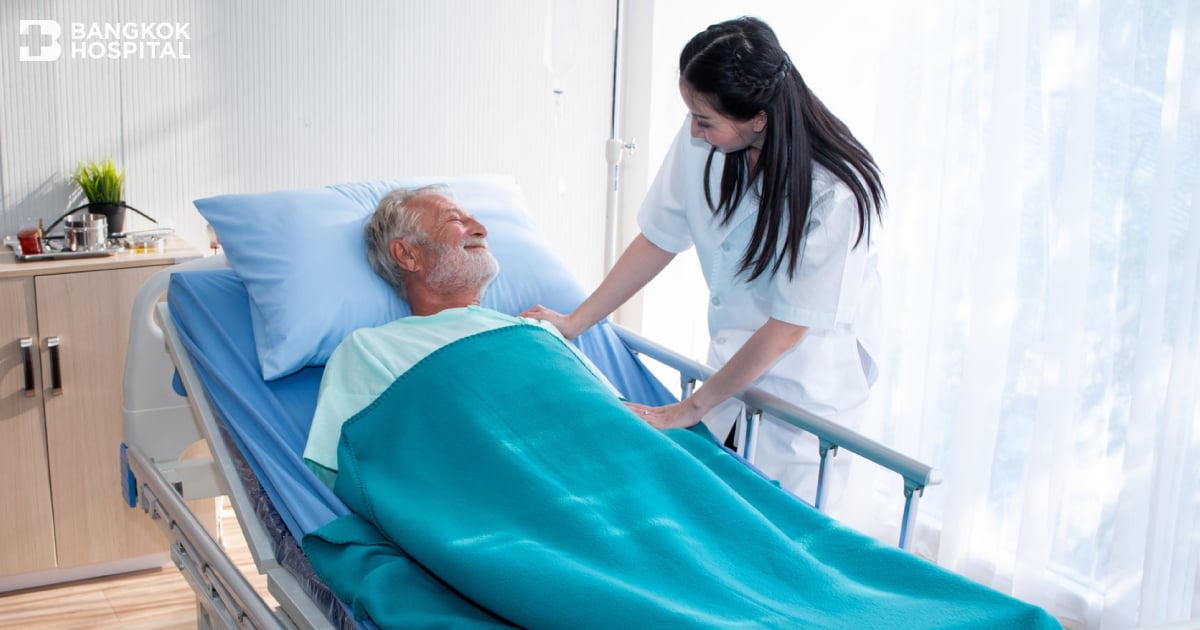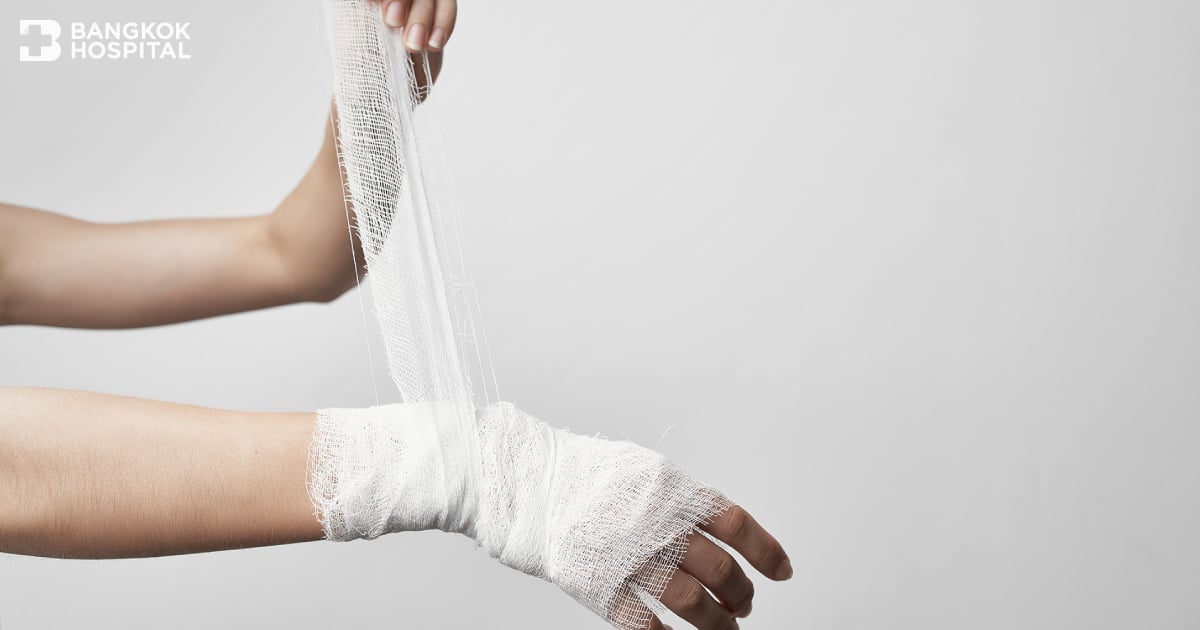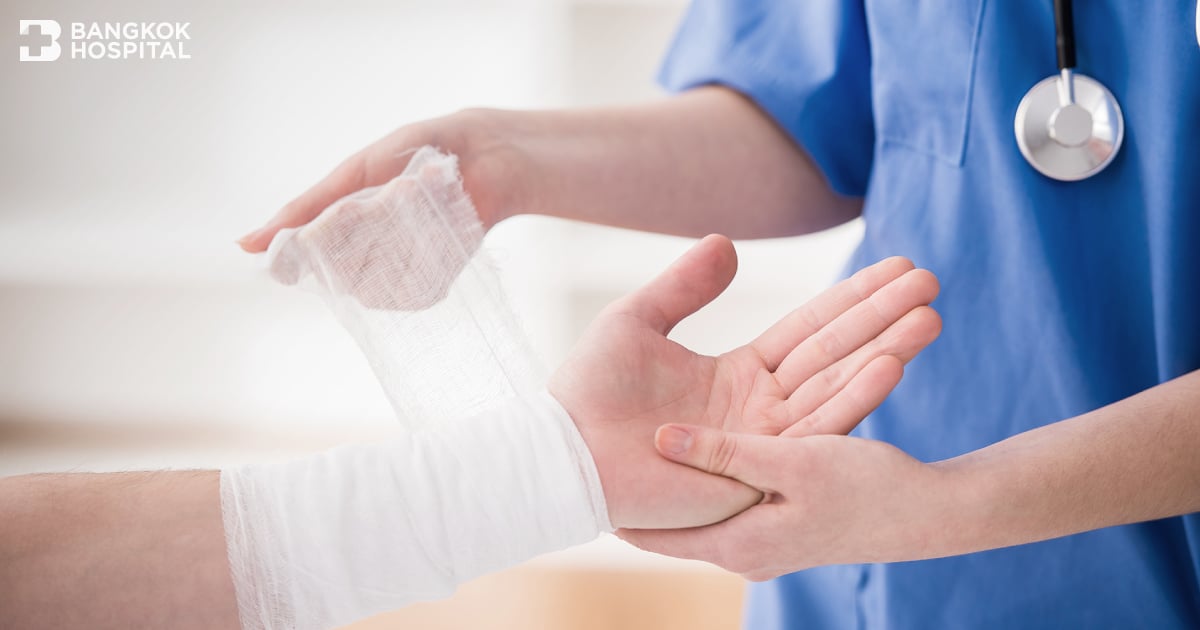We have all had cuts and scrapes that we can take care of at home. But what about more serious wounds – What should we do before going to see a doctor? Whether you have a minor or a more serious open wound, it is important to take quick action. Some open wounds can be treated at home, but this is not always the case. Immediate first aid before going to see a doctor can make a difference especially for boiling water burns, electrical burns, lightning burns, and chemical burns.
Taking care of scalds and boiling water burns
- Immediately get away from the heat source to stop the burning.
- Cool the burn with room temperature water. Do not use ice or iced water.
- Cover the burn with clean cloth.
- Seek immediate medical attention.
What you should know: Heat can destroy cells and lead to tissue damage. Therefore, it is important to reduce the temperature as soon as possible or within 15 minutes. This can reduce further tissue damage.
Taking care of lightning or electrical burns
- Turn off the source of electricity if possible.
- If not, move the source away from both you and the injured person using a dry, non-conducting object made of cardboard, plastic or wood.
- Check the patient’s condition – airway, breathing, and pulse. Check other possible injuries such as head injury or fractures.
What you should know:
- The longer the contact, the worse the electrical burn can be.
- Severity of electrical burn depends on the voltage. If more than 500 volt, lysis of muscle tissue may occur. Although the wound seems small, the patient needs a medical attention right away.
Taking care of chemical burns
- If the burning chemical is a powder-like substance, brush it off the skin. Do not blow.
- If the burning chemical is a liquid, flushing the chemicals off the skin surface with running water immediately.
- Remove clothing that has been contaminated by the chemical.
- For both acid and alkali burns, the best treatment is to irrigate the wound with water.
- Cover the wound with clean cloth. Do not wrap the wound too tight.
- Burned arms or legs should be raised higher than the patient’s body in order to prevent the inflammation.
- Take the patient to the hospital right away.

